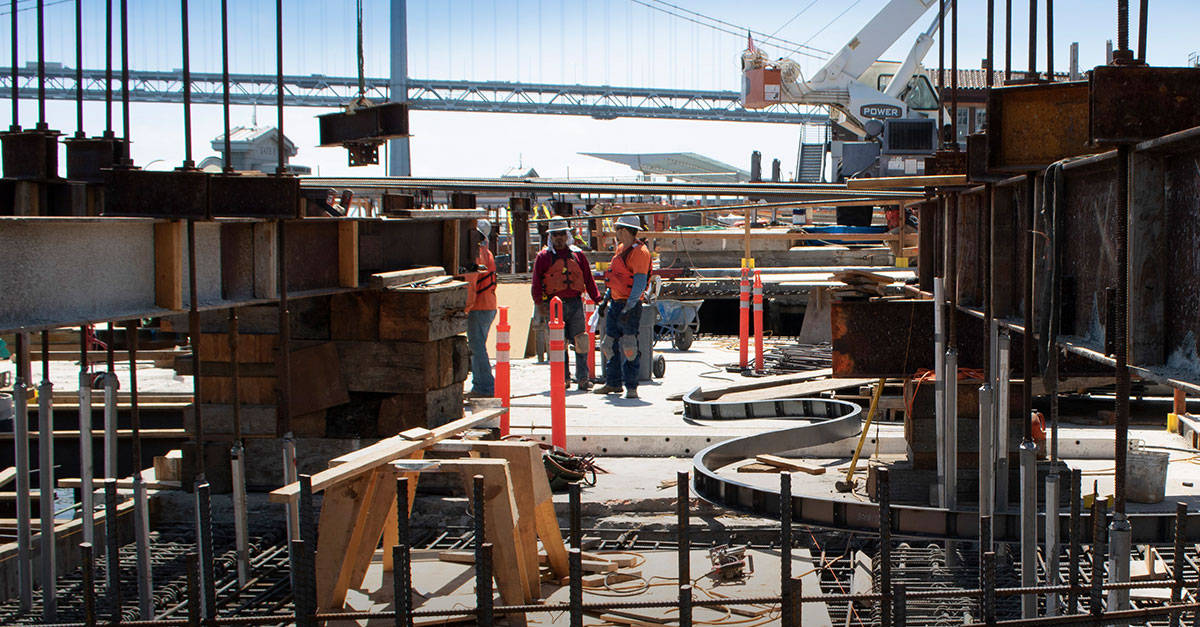5 Ways Payment Delays Affect Construction Managers

Jonny Finity is the Content Marketing Manager at Levelset, where over 500,000 contractors and suppliers connect on a cloud-based platform to make payment processes stress-free. Levelset helps contractors and suppliers get payment under control, and sees a world where no one loses a night’s sleep over payment.
Construction managers pay attention to so much on-site, from keeping subs and workers happy to planning and tracking materials. How quickly their subs get paid may not even be on their radar. But a new survey report found that at least 50% of all contractors are having problems getting paid, and the effects are rippling across construction projects. Here, we analyze the report to highlight how payment problems can affect a construction manager’s ability to do their job — and what they can do about it.
The 2019 National Construction Payment Report, released this week, is based on a survey of over 500 construction professionals conducted by Levelset and TSheets by Quickbooks.
Survey snapshot
- Half of all US contractors do not get paid on time, causing serious cash flow problems
- 42% of contractors pay their subcontractors or suppliers before they get paid by their customers
- 80% of contractors report a percentage of payment regularly withheld as retainage, with 66% being forced to wait longer than 30 days for retainage payment
- Only 4% of contractors say they receive a deposit up-front on every project
- Nearly all survey respondents (98%) said they’ve threatened to file a lien, and 58% have actually filed a lien to get paid
5 ways cash flow affects a construction manager’s ability to do their job
1. Slow business
Contractors say that cash flow issues limit their ability to grow (16%), reduce their competitive nature (13%), and prevent them from taking on new projects (12%).
2. Unhappy employees
Contractors say that cash flow problems affect their ability to meet payroll (21%), give raises (8%), and give employee benefits (7%). Would you rather be scheduling happy workers who are well-compensated or frustrated employees who feel shafted?
3. Material supply problems
Nearly 42% of suppliers said they were dissatisfied with how quickly they get paid, and nearly 3 in 4 said they have filed a mechanics lien on a project to get paid. This should concern anyone responsible for coordinating materials on the jobsite.
Slow payments also cut into the material budget. Almost 60% of material suppliers said it takes more than 30 days to get paid — and over half of them say they charge interest on late payments.
4. Strangled profits
More than 80% of contractors say GCs or property owners withhold 5-10% of payment as retainage (also known as “retention”), and more than 25% of contractors say they don’t always get the retainage payment in the end. In an industry where the average pre-tax profit for contractors is only between 2 to 4%, losing a retainage payment can quickly put a business in the red.
“Retainage...is a way for companies to take an extra 10% off the top,” said one survey respondent. “They will make up reasons not to return it, despite having done the work they requested.”
5. Mechanics liens
Nearly all contractors have threatened to file a mechanics lien (98%) and more than half have actually filed one (58%). A lien can shut down an entire jobsite, effectively halting the work of the construction manager and the rest of the crew.
When your reputation is staked on your ability to manage successful projects, all of these risks should raise a warning flag. Having a job shut down because an unhappy sub filed a lien isn’t exactly a resume booster, even if it’s caused by circumstances out of your control.
To make matters worse, it’s unlikely that construction managers have the right to file a lien to get paid (though lien rights vary by state).
How construction managers can reduce the risk of slow payments
There are some simple ways that construction managers can reduce the risk of slow or non-payment, and keep work on the jobsite flowing.
1. Encourage transparency
Use a Request for List of Subs, and make sure every sub on the job is sending visibility documents like preliminary notices. If GCs and property owners don’t know who is on the jobsite, they’re less likely to pay them on time.
2. Communicate clearly and often
In addition to feeling the pinch from negative cash flow, subcontractors also say they feel in the dark when it comes to payment. 75% of contractors surveyed said they wish they had more visibility into the payment process, how others are being paid on the job, and what the payment terms are for others on the job.
Ultimately, projects go more smoothly for everyone — including construction managers — when contractors and suppliers get paid on time and according to fair terms!

 Jonny Finity •
Jonny Finity • 
















